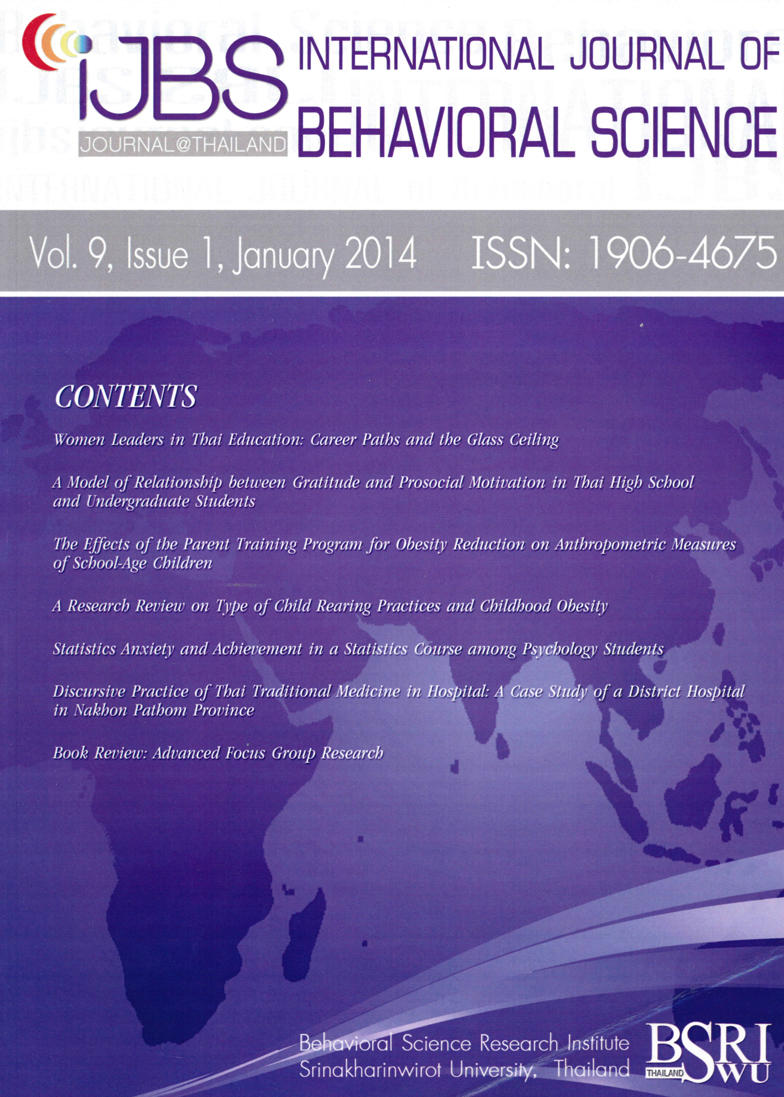Psychosocial Correlates of the Quality of Work Life among University Teachers in Thailand and Malaysia
Main Article Content
Abstract
Quality of work life was examined among university teachers in Thailand and Malaysia and also its relationship with the selected psychosocial factors of subjective well-being (measured in three dimensions of job satisfaction, life satisfaction and negative affect), work family conflict, and general self-efficacy. The research instruments were constructed and adapted for data collection. For the Thai sample (N=165), the whole set was first translated into the Thai language, back translated and then checked by experts. Data collected from Thailand was compared with the sample from Malaysia (N=160). All the study variables had significant correlations with the quality of work life. SEM results showed that subjective well-being mediated the relationships between the psychosocial factors (work-family conflict and general self-efficacy) and quality of work life. Multiple group analyses indicated that the associations between the variables were similar between the two samples. The study findings could be beneficial for developing and supporting staff in higher education in different countries.
Keywords: quality of work life, job satisfaction, life satisfaction, negative affect, work family conflict, general self-efficacy


